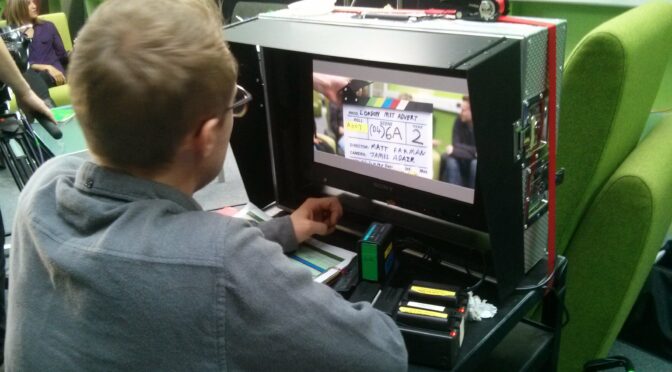This is probably one of the most common questions we get asked when talking to new clients. And no surprise. It’s extremely difficult to get a sense of what video production costs when doing a cursory google search. Our industry is shrouded in mystery over what we charge, with most companies holding their cards very close to their chest. Not only that, but when you do get quotes in from a few suppliers, everyone seems to be charging wildly different amounts. No wonder that “how much does a video production cost?” is one of the most burning questions on the lips of people looking to do video.
This is the ultimate guide to unpacking costs so you can make an informed decision about how much to invest in video and how to pick a supplier that’s the right fit for your business. I’m going to let you in on the secrets of how we charge for video production and the general industry benchmarks for various types of video. Lets demystify pricing and make life easier for everyone!
Firstly, it’s worth mentioning that there’s a very good reason that most video production companies don’t advertise their prices. There’s nothing nefarious about it. The simple reason is that most don’t have fixed prices for videos. Why you might ask? Because most video projects aren’t a cookie-cutter approach. Each project often has multiple elements to it that are figured out once the client has provided a brief. Imagine you want a new kitchen… you could do it yourself with some second hand units for a few hundred pounds or get a high-end kitchen company to install it for tens of thousands. The same principle goes for creating video content for your business.
Let me give you an example. Three companies have the exact same brief for a video – they want a 2 minute explainer video that talks about their new product. The first company is a start-up that hasn’t made any sales yet and the budget for video is coming from the founder’s own bank account. The second company is a 5 figure small business. The third company is a multinational corporation with 2500 employees. As you can probably appreciate, each of these businesses will have different expectations for the outcome of this video. They also almost certainly have different budgets. So this is what it costs in this hypothetical situation. The startup has no budget, so the Founder hires her friend’s son to do the job. He’s studying film at Bournemouth University. He’s happy for the experience but she still pays him £300 which is minimum wage over the 10 days it takes him to complete the project. She gets lucky and the film does the job. It’s very rough around the edges but it’s only a stop gap while the company generates some momentum. The Small Business hires an experienced freelancer that they often work with. He charges them £3,000 + VAT. He completes the project in 30 days because he’s fitting it in around other jobs. They are happy to wait because they know they’ve got a deal. The outcome is good but not award winning. Finally the big corporate hires a production company for £30,000 + VAT to create their explainer video. They want fast turnaround so the project is completed in 15 days. The production company brings in a specialised team and delivers a very high-spec film that wins an award at Cannes Lions. So if you ask me “what does an explainer video cost?”, I’ll say, “that depends”.
“OK I get all that” I hear you say. “But how much does video production cost? Just tell me the numbers for different types of production! And how does your industry create a quote?”
Fine I’ll tell you but I’m giving away all the secrets now.
To understand the costs, you need to understand how video productions are staffed and the work that goes into them. In that way, you can probably get a better understanding of the costs associated with your particular project.
There are 3 parts to a video production project that we generally call “Pre-Production” (Everything before the filming from consultation and creative ideation to finding crew and shoot planning), “Production” (usually the filming but also anything that’s critical to filming such as storyboarding and set design) and “Post Production” (Editing, Animation, Motion Graphics, Sound design). So when you come to a video company with a brief, they are considering all three parts of the project and what will be involved. So let’s take a very typical example…
Case Study: A Case Study Video
You are a service based B2B business and you want to create a case study video with one of your star clients. You want professionals to complete this and you don’t want to micromanage the project so you get 3 quotes from video production companies. Here’s what’s involved in that project…
Pre-Production
The Account Manager or Producer fact finds with you to get a sense of the project in phone calls and a face-to-face meeting. He/she establishes the narrative for the case study and suggests 3 interviews to film – one with your client and two with members of your team. Reach out to your client begins. They set up the filming time and location. Then there’s some back and forth over where to film the interviews. The Producer works with you to write questions for the interviewees and create a narrative thread to the case study film.
Production
The Producer, Camera Operator and Soundman come to film the interviews. They setup and light each interview shot. They film the interviews and then grab other shots to help tell the story. Door to door, including travel, this is a 10 hour day.
Post-Production
The Producer obtains brand guidelines, fonts, logos and other assets to include in the edit. He/she then works with an editor to communicate the story. The editor goes through 3 hours of footage, trying to condense it down to 2 minutes. Music, titles, graphics are added. The film is also usually “graded” which means they need to adjust light, colour and retouch any shots then give it an overall “look”. Successive versions of the edit are reviewed internally before the first draft is ready for the client. Most companies offer 2 rounds of client amends. Once those are done and the client is happy, the film is “exported” at the best quality, checked and then sent over to the client.
Depending on the complexity and ambition of the project, this whole process can take between 7 and 15 days of combined man-hours to complete. All these individuals are skilled and creative. Most will have a University degree. What do you think it’s worth? A builder re-doing your bathroom might charge £5 – 10K for a similar length job. To give you an idea, with most production companies in London quoting for this type of job, you can expect a range between £2,500 and £5,000 if it’s a simple production. The cost varies depending on factors such as – how much work is needed in the set-up, does the shoot require travel, how premium does it need to look and what shots are being included in the edit? For a more complex project like this for a bigger company, £5,000 – 15,000 would be a more likely range (think multiple interviews shot very stylistically, whizzy motion graphics, premium stock footage). You can see there’s quite a bit of variation!
Starting to get a better picture? OK let’s look at some other examples…
What about if you are a B2C company rather than B2B? You have products to sell to the consumer and making sure your product “looks the part” is going to be really important. Whether you are an FMCG brand with a healthy snack or an E-Comm business selling a board game, you know that it’s a dog-eat-dog world where consumers are incredibly fickle. So how much does video production cost?
Let’s take the FMCG brand for example. They want to make a series of adverts to run on Facebook, Instagram and Youtube that show the quality of the ingredients in their Goji berry bar, their commitment to sustainability and the nutritional benefits of going Vegan. Without going into the specifics of pre-production, production and post-production on this one, already this project is sounding more complicated. We’re going to need serious creative brainstorming, an understanding of the customers we’re speaking to and an in-depth knowledge of the brand story and product. We might need storyboards to plan out the shoot. Props, ingredients and a studio to film in. Maybe set design is required and a food stylist. We need the big boy lights to make the product look good and actors to demo the product. Oh and we need to run tests with the product beforehand to understand how it handles under the scrutiny of the camera lens. As you can probably appreciate, if this is a food startup then they will be on a shoestring budget where £5K might be too much for this project. If it’s Nestle then £50K might be too little.
How much does video production cost? I hope I’m giving you a fuller picture but also helping you to understand that it’s a “how long is a piece of string” question. But let’s keep going…
You’re an events company. You want to promote the events you hold with videos of the events. So you need an event video. A very common and practical use for video. Surely we should have fixed prices for this too? But look how 3 of this company’s events might be quoted for;
The first is an evening networking event that’s just 3 hours long. All you want is a highlight video. The production company sends a single, junior camera operator to grab some footage without sound. The editor assembles it into a fun 45 second promo film with music. Job done. The second film is for a 1 day conference that you are hosting. This film needs to be 2 minutes long with interviews, soundbites from the speakers on stage and shots of the event. This is now a 3 man team – Producer, Camera Operator, Soundman. But it turns out we’ll need 2 x camera operators to get the coverage that’s required. And a site recce is also needed to make sure things go smoothly on the day. Then your PR firm asks for the edit to be ready the morning after the event so overnight editing is required. So as you can probably appreciate, a question “how much does it cost” is impossible to answer until the project has been fully specced out. And finally, your annual big event is taking place over 3 days in Paris. We need multiple crews, on-site editing and different videos created throughout the day. Where do we begin with this one? 3 different events, 3 different scopes, prices ranging from £1000 – 30,000.
Lets pick another one…
In the B2B world – Animations. You can honestly get these done for under £500 if you go for the cheapest possible option – cookie-cutter company that you found on Upwork. Why are they so cheap? Because they are recycling pre-built characters, icons and templates that have been created to service a large volume of clients. The experience is going to be invariably pretty painful as you won’t be able to customise what you want and you will have to micromanage every aspect of the production. But then it is £500 after all! If this isn’t the approach you want to go for then start thinking more in terms of £5K, 10K, 20K if you want something to look good. It’s going to take an animator at least 2 weeks to produce anything good. And if you want it to look really good, then you’ll need storyboards to begin with, an illustrator needs to create designs first then an animator brings them to life.
And one last example…
A promo film for the new winter line of a fashion brand. The price depends on the brand. If you are an emerging brand without two pennies to rub together then find a videographer who specialises in fashion. Agree the creative direction internally and produce your own rough storyboards (scribble them on the back of a napkin if need be). Project manage the production yourself by finding the location, models and props then have a crack at Directing. It’s going to cost you a few thousand pounds all in all, maybe less if you pull in loads of favours. It’s also going to suck ALL your time for the next 2 months so be prepared for that.
If you are a well established, household fashion brand looking to film a TV advert then of course you don’t do any of this yourself. You hire a professional video production company and possibly even reach them through your creative Ad agency who have come up with the concept for the film. You’ve spent a month agonising over the details of absolutely everything and getting those approved by other stakeholders. And on the shoot day, you’ve thrown the kitchen sink at it. Not including the creative agency fee, the production costs anything upwards of £100K.
“George, you are frustrating me now. Just give me the costs. Stop giving a range”.
How about this, how about we get more granular about what individual crew members charge and how companies pass that cost on? Let’s take a camera operator as an example. Most production companies will have a mix of in-house and freelance camera operators. The more specialist the camera operator, the more likely he/she is freelance and charges a higher fee. Here’s the spectrum – a junior camera operator in their early twenties who is just cutting their teeth might command £150 per day including an entry-level camera. An experienced camera operator might charge £1000 per day and then hire their kit on top of that. The same principle applies to Directors, Editors, Drone operators, Animators and practically anyone working in production. It’s a freelance world where the more experience you have, the more you charge. Because you are normally experienced, fast, slick, reliable and frankly highly talented. So if you want to work with the best, you have to pay for the best.
For any production company to provide a good service to their clients, they have to mark up the prices of all their staff members or freelancers. Not because they are being “greedy” but because there are large overheads associated with production work that need to be accounted for from the time it takes to establish relationships with and “road test” the best freelancers, check their availability, hire them and facilitate their work, through to costs associated with production like office rent, equipment, software and general business management. The typical net profit margin for a successful production company is anywhere between 10% and 20%. And most companies reinvest that in growing the business to better serve their clients. So if you do ask for a 20% discount, just remember you are probably asking them to make no money on the job.
I hope you’ve found this article useful and you have a better understanding of “how much a video production costs” and if you still aren’t sure then ping me an email and I can answer any further questions.
Would you like support from Small Films for your next video? Then give us a shout at info@smallfilms.com




